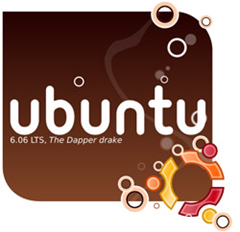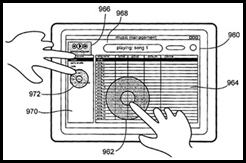Google Nexus Tablet and other weekend developments
The Google Nexus phones are phones you can buy that run the latest Google Android operating system. Other Android phones aren’t made by Google. Only the Nexus is a real Google Phone. Well, there are rumors that Google may be making a nexus tablet. Reportedly, they’ve teamed up with LG to make one. Samsung manufactures the Nexus S phones. HTC manufactured the first Nexus phone.
The original article is in Russian on mobile-review.com. Here’s the translated one.
Another interesting tidbit is the part about Honeycomb licensing restricting deployment to tablets running Android 2.x. In other words, manufacturers must make a Honeycomb tablet, not upgrade one. Tablet owners like myself may not like this, but it ensures that Honeycomb doesn’t end up on underpowered devices and ruin the platforms reputation for a great user experience.
The PC World article is easier to follow.
Speaking of following, it is rumored that the iPhone 5 will follow the Android phones and get NFC. NFC, or near field communication, is a technology that lets your mobile device communicate directly with devices in very close proximity. One interesting note, according to that article, is that the iPhone 5 will have a “twist” to its NFC implementation.
 When it comes to implementation, ASUS announced the Eee Pad “Transformer” Android Honeycomb Tablet. That’s a mouthful! It’s a 10.1 tablet with a 1280×800 display. It’ll be powered by an NVIDIA Tegra 2 CPU have a 1GB of RAM.
When it comes to implementation, ASUS announced the Eee Pad “Transformer” Android Honeycomb Tablet. That’s a mouthful! It’s a 10.1 tablet with a 1280×800 display. It’ll be powered by an NVIDIA Tegra 2 CPU have a 1GB of RAM.
They keyboard also acts as a secondary battery, which is a pretty good idea. The full specs are on the ASUS website.
If you want to get an Android tablet, but want to make sure it’ll run Honeycomb, this is one of the first to come out. If the article referenced above is true, your Android 2.x tablet won’t get Honeycomb “officially”.
$1 Billion Open Source and Google getting it…
I like Ubuntu because I like Debian. Debian, to me, always seemed more logical and software dependency resolution built into synaptic made life easier. RPM files made me pull my hair out.
 Hey, I never claimed to be a Linux guru, and I’ve tried to switch over to it on numerous occasion. In the world I live in right now, it’s Microsoft Windows and a flavor of BSD (aka OSX). All my Linux deployments are vertical in nature. For example, I have Ubuntu Server running in VMs as peer to peer VPN based routers. This gives me a layer 2 network “in the cloud” that I can connect any node or site to with zero firewall configuration (via NAT traversal). It’s handy, and I’ll blog about it someday if enough people care to know how I did it.
Hey, I never claimed to be a Linux guru, and I’ve tried to switch over to it on numerous occasion. In the world I live in right now, it’s Microsoft Windows and a flavor of BSD (aka OSX). All my Linux deployments are vertical in nature. For example, I have Ubuntu Server running in VMs as peer to peer VPN based routers. This gives me a layer 2 network “in the cloud” that I can connect any node or site to with zero firewall configuration (via NAT traversal). It’s handy, and I’ll blog about it someday if enough people care to know how I did it.
Either way, Linux isn’t going away; messy licensing and ignorant mid-level management aside. And if you doubt it, just look at Red Hat. Red Hat is poised to the first open source business to hit $1 billion in revenue. It’s fiscal 2011 revenues this week hit $909 million. Remember all the FUD about Linux in the world of IT? How it was insecure, hard to use, and just not ready for prime time? Well, that protected the status quo for a while, but those days are over.
Usage Identity
Ubuntu is an extremely user friendly Linux. Lots of effort has been put into it to make it support a wide array of hardware, to be visually pleasing, and to have it’s own what I like to call “usage identity”. Usage Identity is a phrase I use to speak about more than just the user experience. It’s about usage paradigms, expected behavior, and sense of quality.
If you’ve always wondered what all the fuss was about when it comes to Linux and you have an old computer, download Ubuntu, burn a CD or DVD, and install it. You may be surprised how much fun using a new operating system can be. What do you have to lose?
 Apple has an incredible usage identity, and they’ve had it for an inordinate amount of time. You can take the newly minted Mac user of today and sit them in front of an original Mac and they’ll find their way around. Apple’s tight control of their market is to maintain their Usage Identity at all costs. From pricing, to packaging, to support.
Apple has an incredible usage identity, and they’ve had it for an inordinate amount of time. You can take the newly minted Mac user of today and sit them in front of an original Mac and they’ll find their way around. Apple’s tight control of their market is to maintain their Usage Identity at all costs. From pricing, to packaging, to support.
Microsoft’s usage idenity is better than it used to be. They’re not making dramatic shifts like they did from 3.11 to 95. Since Windows 95, though, they’ve consistently improved their user experience. Considering the level of backwards compatibility they maintain and the size of their install base, it’s an absolute wonder what they accomplish sometimes. Say what you will, but there’s not another technology vendor on the planet that has to deal with such diverse environment.
From Glass House, to Desktop, to Hip
 I met the boys from Red Hat at a convention in L.A. many years ago when I was CTO of a dot bomb. Their enthusiasm was infectious and they were my first face to face encounter with a pure open source play. In my arrogance and ignorance, I didn’t take them seriously. Boy, did that teach me a lesson!
I met the boys from Red Hat at a convention in L.A. many years ago when I was CTO of a dot bomb. Their enthusiasm was infectious and they were my first face to face encounter with a pure open source play. In my arrogance and ignorance, I didn’t take them seriously. Boy, did that teach me a lesson!
Which brings me to Google.
Google, on the other hand, I view very differently. Don’t get me wrong, I have the highest respect and admiration for the Red Hat community; they’ve proven the IT Establishment wrong in heroic fashion. Google, though, is starting from an very different place. In fact, they’re somewhat standing on the shoulders of Red Hat.
 Google’s “Linux” is Android and I feel like history is repeating itself. We’re seeing all sorts of FUD about the open source nature of Android’s Linux roots. Additionally, Android, is lagging when it comes to user experience. An Android phone is widely perceived to have a lessor usage identity than an iPhone (correctly or incorrectly).
Google’s “Linux” is Android and I feel like history is repeating itself. We’re seeing all sorts of FUD about the open source nature of Android’s Linux roots. Additionally, Android, is lagging when it comes to user experience. An Android phone is widely perceived to have a lessor usage identity than an iPhone (correctly or incorrectly).
Google, though, has vast resources and nobody said Google was stupid (well, almost nobody). With Motorola saying Google is shooting Android in the foot, and Apple drawing a line in the sand when it comes to user experience, I felt like something was going to change, and I was right.
Google said they’re going to hold off releasing the source code to Honeycomb for now. The open source purists may howl, but I think this is good for the Android ecosystem. I love previewing stuff as much as the next guy, and we know Google will release the source code.
Google is holding off releasing the source code because it’ll get compiled and put on phones before it’s polished. Google wants to people to have a great user experience when they use Honeycomb. Getting access to nightly builds has been both the great thing about open source and one of the biggest Achilles heels of when it comes to competing with closed source. By not waiting until a product was truly ready for prime time, open source products have blown their one chance to make a great first impression in many cases.
So hopefully, the open source community will simmer down, and sit tight; because Google is playing it smart, folks. Damn smart. I hope the Android hackers will turn their collective energy from bitching to maybe helping evangelize or improving the platform. Honeycomb has to raise the bar over Apple’s stellar iOS if they’re going to truly instill droid envy in their competitor’s customers.
Hi Motorola! I love you, now please shut up.
First, let me disclose that I am a Motorola stockholder. Let me follow that up by saying Information Week is reporting probably the dumbest news Motorola could let out right now. My mouse is hovering over the button to short their stock as I try and figure out what the hell they’re doing.
According to an article in Information Week, and inside source (aka blabbermouth) said Motorola is working on a web based OS to hedge its bets against Android. Ok, so being safe isn’t a bad thing, the stockholder in me agrees with this. Secondly, I agree that it’s a good idea not to rely on a single supplier.
The developer in me, on the other hand, wants to go bitch-slap some mid-level executive for speaking to the press about such a project. They shouldn’t be throwing blood in the water, they’re not Apple.
 Motorola is a company with a storied pedigree of technical excellence. However, that pedigree seems to be currently managed by people with the IQ of the last winner of the Westminster Dog Show. No offense to Hickory, the Scottish Deerhound who won best in show.
Motorola is a company with a storied pedigree of technical excellence. However, that pedigree seems to be currently managed by people with the IQ of the last winner of the Westminster Dog Show. No offense to Hickory, the Scottish Deerhound who won best in show.
Speaking of dogs, I remember some of the phones they made in the past; back when there was “real” fragmentation in the mobile space. Different Bluetooth chipsets isn’t “fragmentation”, nor are different screen sizes, or USB or HDMI ports. People don’t say Windows is fragmented because it runs on desktops and laptops, do they? Really folks, get serious. If the win32 API was different on every machine with different hardware, that’d be fragmentation.
How Motorola thinks this is a good thing to let leak considering their quote-unquote stellar technical successes in the cell phone space avoids me. It’s a good thing they’re working to pick up some former Apple and Adobe employees to try and pull it off. However, they need to do this in a clean room style fashion. In my opinion, they’d do better to reveal this when it was almost done; maybe targeted at a vertical market like health care.
Despite the quoted belief that Google is shooting our favorite little green droid in the foot; Motorola has seen a resurgence of technical respectability in the consumer market on the heels of Android’s success.
 This is FUD of magnificent orchestration. I wish I knew the marketing / PR firm behind it all because they’re really starting to get people to buy it. It reminds me of the successful messaging that consumers are counter culture for buying a major consumer brand.
This is FUD of magnificent orchestration. I wish I knew the marketing / PR firm behind it all because they’re really starting to get people to buy it. It reminds me of the successful messaging that consumers are counter culture for buying a major consumer brand.
It’s my belief that all of this is stemming from the various lawsuits and claims that Android copyright violations. Motorola may be wanting to distance themselves from any negative fall out. I wish Sun had sold to Google instead of Oracle. I really, really do.
Maybe they know something the rest of us don’t?
Either way, Linus Torvalds himself weighed in and said the following :
"It seems totally bogus," Torvalds told IT World’s Brian Proffitt. "We’ve always made it very clear that the kernel system call interfaces do not in any way result in a derived work as per the GPL."
Basically, Motorola, keep your collective mouth’s shut before you shoot yourself in the foot and end up pissing off the supplier of the biggest, fast growing mobile platform in the world. The same platform that has benefited you oh, so much recently.
Oh, and send me a free Xoom? I’d like that. kthxbye.
